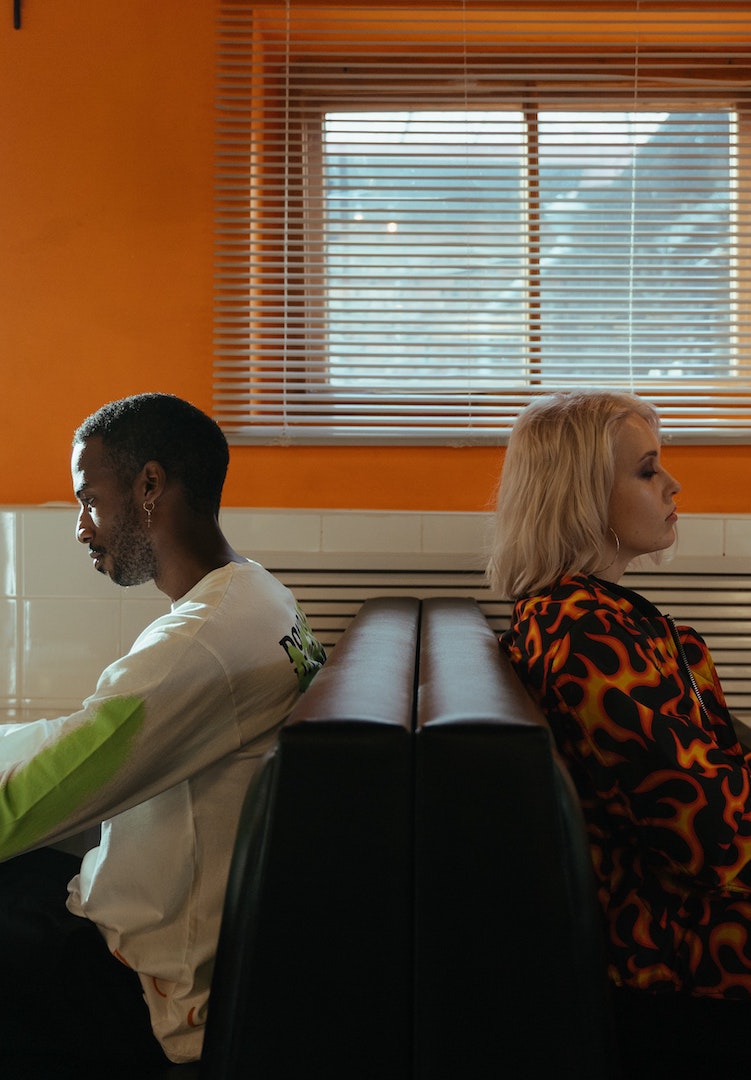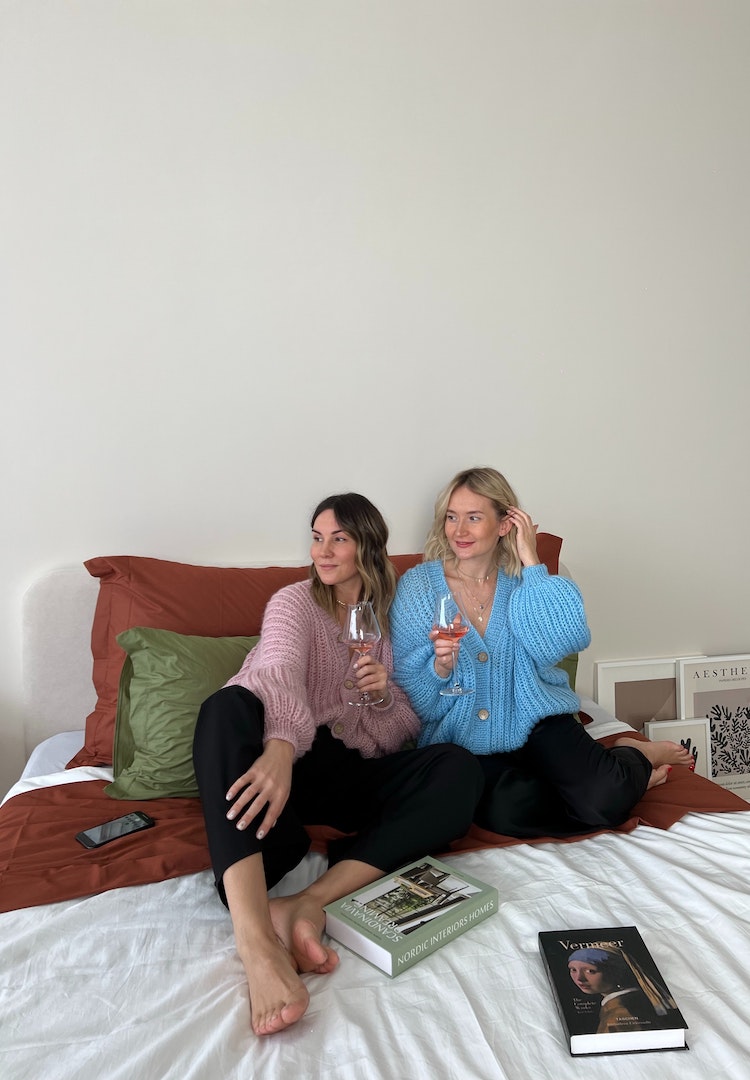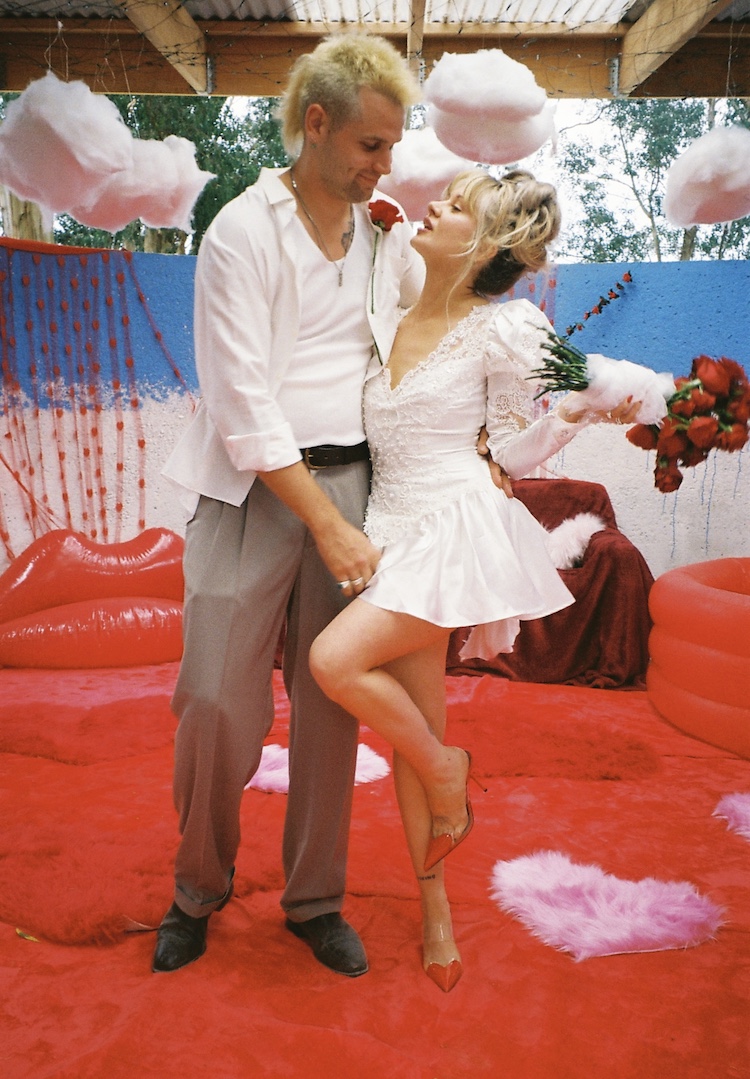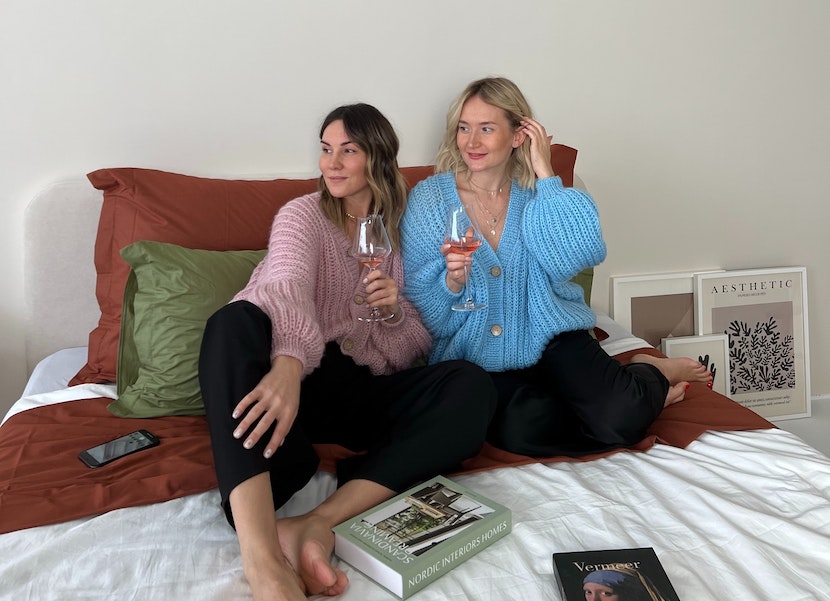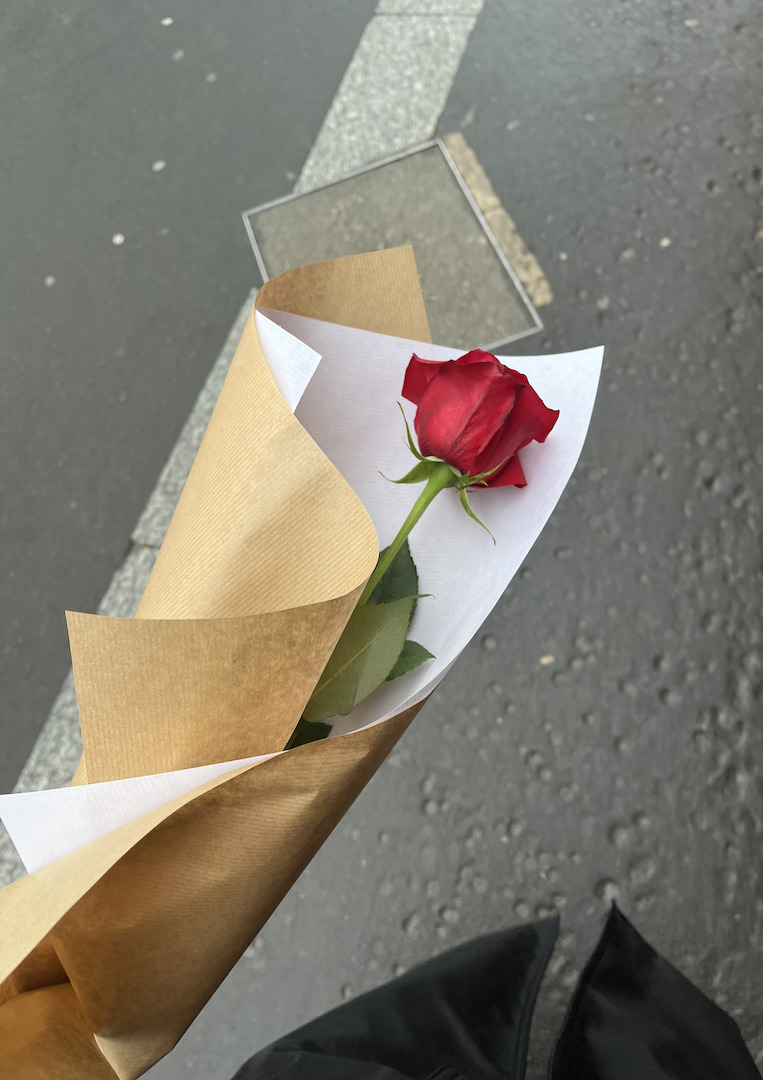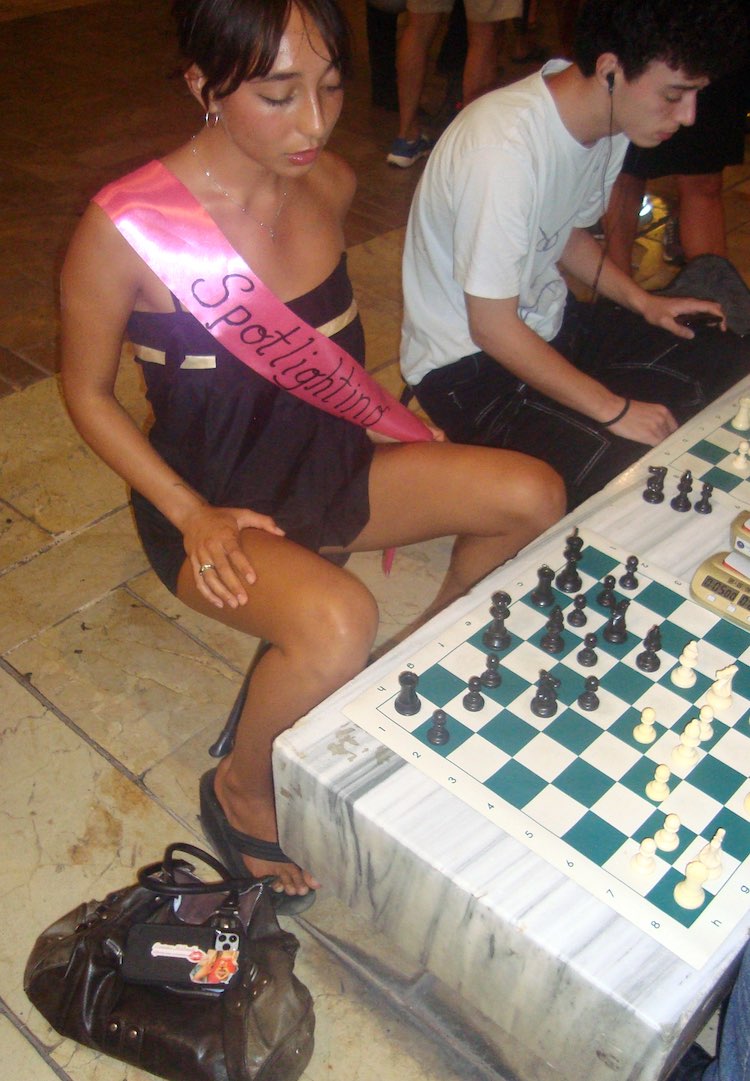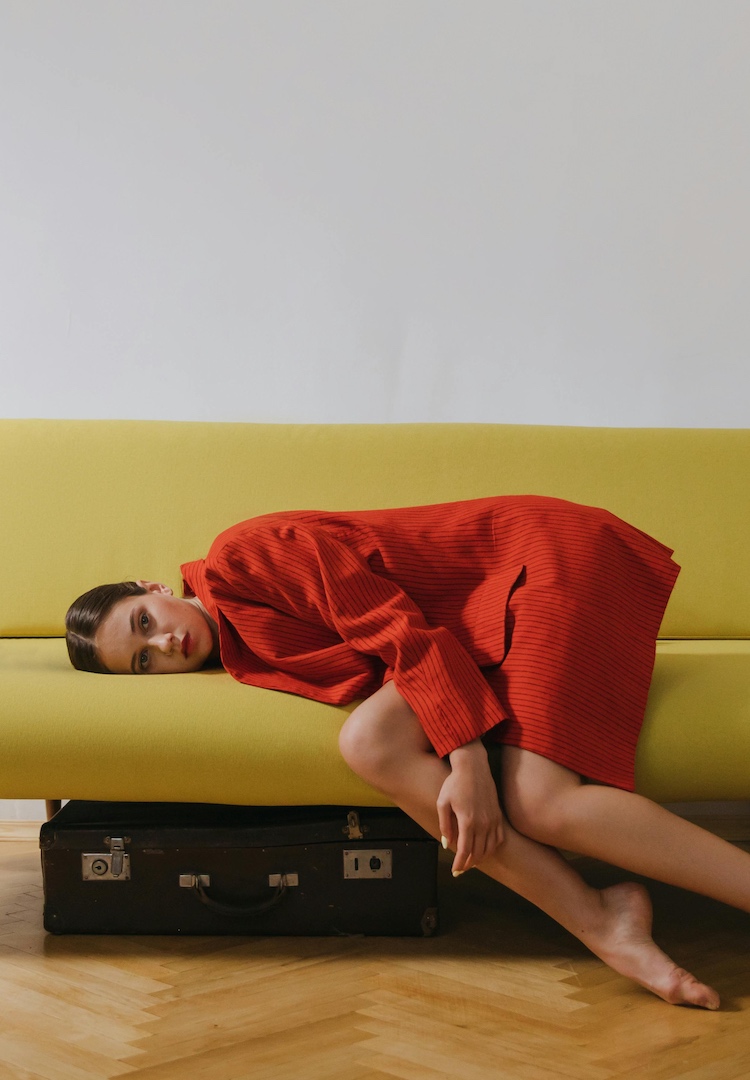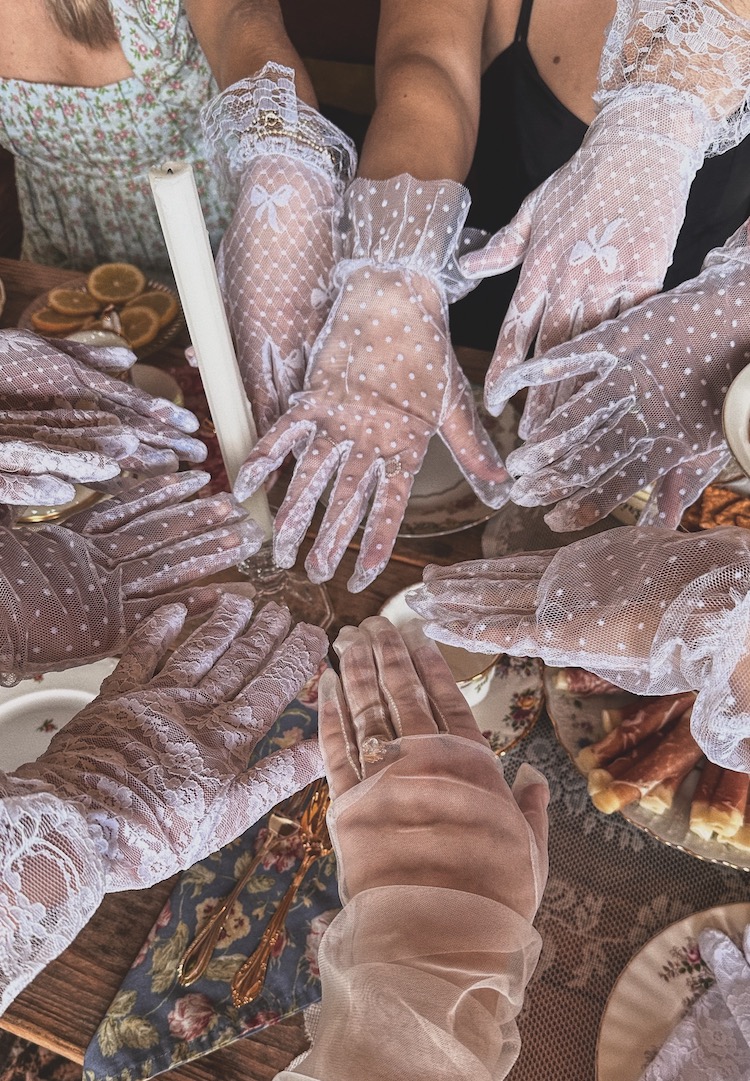An excerpt on complicated female friendships from writer Joanna Horton’s novel, ‘Between You and Me’
WORDS BY JOANNA HORTON
”Sometimes Mari tried to imagine her life without Elisabeth, and what came to her was a disturbing sense of formlessness and lack, random elements that added up to nothing.“
In the kitchen, Jack and Elisabeth sat at the table while Mari looked in the cupboard for glasses. She hadn’t really expected Jack to come, and now that he was here she found herself feeling self-conscious about the house, a crumbling old Queenslander with high ceilings and decorative arches carved over the doorways.
The paint was peeling, the gutters clogged every time it rained, and there was a rotting floorboard situation in the bathroom that neither Mari nor Heidi wanted to investigate further. She knew Jack probably found it squalid, and she had a perverse desire to make him admit this, so she could accuse him of being a snob. “What do you think of the place?” she asked. “Is it like the share houses of your youth?”
“Oh, much nicer,” he said. “When I was an undergrad I lived in a house where the ceiling leaked, and by the end of summer there was black mould growing everywhere. It’s a miracle we all survived with our lungs mostly intact.”
Mari reached up to the top cupboard to get a bottle of tonic water. She was aware, as she did this, that the hem of her top was skimming over her stomach. “Well, we don’t have black mould, but we do have that panel in the wall – see that one there? It’s exposed asbestos. The real estate agent says it’ll be fine as long as no one knocks it.”
Jack laughed. “Well, at least real estate agents haven’t changed since I was young. I always thought they’d be the shock troops for fascism.” He was opening the gin, glancing at her as he twisted the cap. “Do you have ice?”
“Sure.”
Jack’s movements as he poured the gin and tonics were confident, assured, as if he were in his own kitchen making drinks for his guests. Mari watched him sipping from his glass, looking around the kitchen: its grease-spotted walls, shelves crowded haphazardly with packets and bottles.
“Yeah, this is nice,” he said. “Your place, I mean.”
There was an empty chair at the table, but Mari hopped onto the kitchen counter and swung her legs, banging her heels against the cabinets. “It’s kind of shitty,” she said. “You should see Elisabeth’s place – that’s nice. Her room is, anyway. She’s got good taste.”
“It’s not that nice,” Elisabeth said. Mari smiled and said nothing. She knew Elisabeth was embarrassed by the implication of Jack seeing her room. Elisabeth was always poised, she had a forthright intelligence that she used to direct conversations exactly where she wanted them to go, but she could be reticent about sex.
Mari attributed this to her conventional upbringing, or else her tendency to intellectualise everything to the point of coldness. She tipped an ice cube into her mouth and cracked it between her teeth. With her mouth full, she said, “This gin is really good.”
Jack spread his hands in front of him. “I thought I’d better come bearing gifts,” he said. “Ingratiate myself with your friends, and so on. Speaking of, are you going to introduce me to anyone, or do I have to stay sequestered in the kitchen all night?”
“We’ll introduce you,” Mari said. “We’re just preparing the ground. We thought we’d let them get a brief glimpse of you, build up their curiosity, and then we’ll take you out and display you.”
“All right. Good to know I’m not embarrassing you.”
“Well, I never said you weren’t embarrassing us.”
Mari noticed that Elisabeth was filming them, and she made a face at the camera. “This is Elisabeth’s surveillance camera,” she said to Jack. “I’m sure she told you about it. I hate it.”
“Well, you ruin it when you break the fourth wall like that,” said Elisabeth. She passed her phone to Mari. “Here, you film for a bit.” Mari pointed it at Jack. Outside, she could hear Heidi laughing at something. Jack was leaning back in his chair, and he looked into the camera lens with a slight smile.
View this post on Instagram
“Hello,” he said. Mari held the phone steady. “Hey.”
“My cinematic debut. What should I say?”
“Doesn’t matter. Say anything that comes to mind.” She dared herself to look straight at him, meeting his eyes over the top of the phone. Something tugged inside her, a snaking tendril in her stomach. From offscreen, Elisabeth said, “You should educate us. Teach us about history.”
“No, history’s boring,” Mari said. “Teach us something else.”
He smiled at her. Not at the camera, but at her. “I don’t think there’s anything else I’m qualified to teach you,” he said.
A rush of heat went through Mari’s body and she dropped her gaze, her fingers slick and clumsy on the phone screen. “There,” she said, handing it back to Elisabeth. “Scene. Or cut, or whatever. The end.”
Jack refilled their glasses, and they talked for a while about Christmas plans. He was the much younger brother to two sisters, he explained, one of whom hosted Christmas every year. “Our parents died a few years ago, which I think was a relief all around, but of course they’ve got their own families now. It’s funny, when I was little, they spoiled me rotten. We never fought, we were never jealous of each other… Not really a typical sibling situation.”
Mari wasn’t surprised by this. Jack had the self-possessed manner of someone who had grown up with the security of being adored, a security so complete he didn’t even know it existed. Elisabeth was the same. “Are you still close with them?” she asked.
“Not really. They both moved out of home when I was quite young, and then I grew up and went to university and now we hardly see each other. I think they’re waiting for me to get married, have a family, that sort of thing. Of course, I’ve explained that marriage is a patriarchal institution, but I don’t know if it’s getting through.”
“So you’re not married,” said Mari. “No Mrs Rochester up in the attic.”
“For the last time, no. Mari, you seem to have a very low opinion of me.”
She laughed, drawing one knee up to rest her chin on. The gin and tonic he’d made was pleasantly bitter on her tongue. “Don’t worry,” she said. “I have a low opinion of everyone. So does Elisabeth, that’s why we’re such good friends.”
It wasn’t quite true. In fact, before she’d met Elisabeth, Mari hadn’t thought of herself as having any opinions at all. Elisabeth was the first intelligent person Mari had ever met who wasn’t a dominating conversationalist or an egomaniac. She was the first person to make Mari feel intelligent too, to ask about her opinions as if they mattered.
Sometimes Mari tried to imagine her life without Elisabeth, and what came to her was a disturbing sense of formlessness and lack, random elements that added up to nothing. She had never tried to put this feeling into words, partly because she knew that Elisabeth didn’t feel the same way.
Jack asked how they’d met, and Elisabeth explained about the boarding house they’d both lived in during their first semester of university. “I’d just moved down here and I didn’t know anyone,” she said. “At home I was kind of a big fish in a small pond, so it was a shock to find out that nobody in Brisbane cared about me being dux of my school or whatever.”
Mari saw Jack smile into his drink. “Of course you were dux of your school,” he said.
“What’s that supposed to mean?”
“No, it’s a compliment. And what about Mari, was she dux too?”
“No,” said Elisabeth. “She was –” she broke off, met Mari’s eye.
“Go on,” said Mari. She felt rash, on the edge of something.
“Tell him.”
“Tell me what?”
“You tell him.”
“Okay,” said Mari. “In high school I had a relationship with one of my teachers.” She paused. “A sexual relationship.”
Jack raised his eyebrows. Mari took a careful sip of her drink.
“Really,” he said.
“Yeah, my English teacher. No one ever found out – well, not at the time. Elisabeth was actually the first person I ever told.”
“How did it happen?”
Mari raised her glass, heavy and slippery, to her lips. “How does anything happen?” she said. “I didn’t know any better, he didn’t know any better. That was it, really.”
“You were young,” Elisabeth said softly.
Jack glanced at her, then at Mari. He was frowning a little. “I’m sure he did know better. How old were you?”
“Oh, I wasn’t underage – I was sixteen when it started. He was thirty-one, thirty-two. It wasn’t ideal, from an ethical standpoint, but I did consent. For what that’s worth.”
“Yeah,” said Jack. “Honestly, I don’t know how much it’s worth.”
Mari felt the bottom drop out of her stomach. She’d thought the story would make her seem sophisticated, grown-up, but it had disgusted him. Of course it had. She got up to refill her drink, face burning, and in a dim corner of her brain she heard Elisabeth change the subject.
Elisabeth could always tell when Mari was upset or uncomfortable, and she would often execute quietly diplomatic gestures to move the conversation onto a different track. It was thoughtful of her, but sometimes Mari herself found it disorienting to realise how keenly attuned Elisabeth was to her temperament, how closely she must have been watching Mari as she spoke.
This excerpt is from Between You and Me by Joanna Horton, published by Ultimo Press on April 5 2023, RRP $34.99. You can get a copy here.

